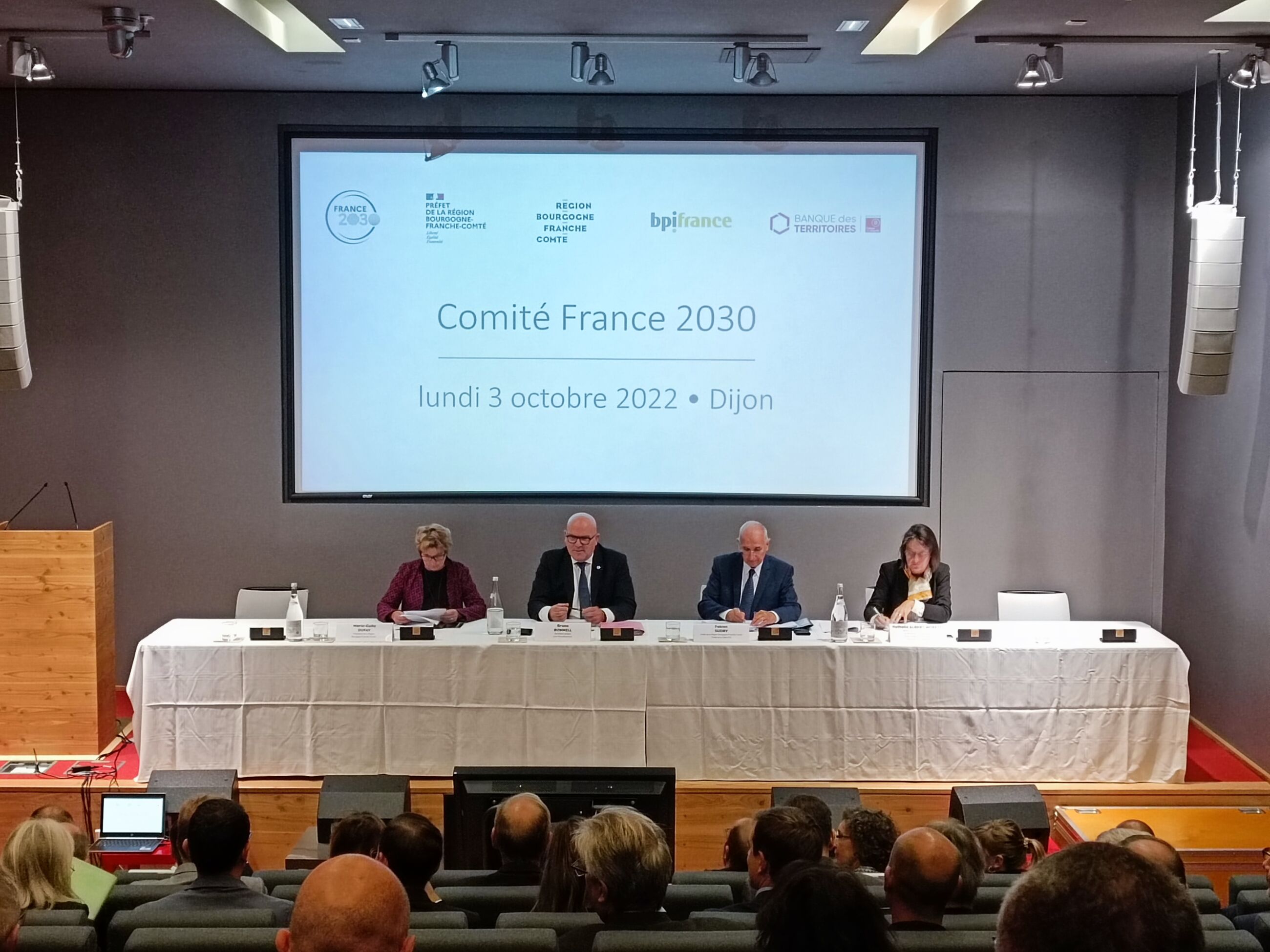Signature of the France 2030 programme
12 October 2022 Investissement, Attractivité de la région Share :

On Monday 3 October, Marie-Guite DUFAY, President of the Bourgogne-Franche-Comté Region, Bruno BONNELL, Secretary General for France 2030 Investment, Fabien SUDRY, Prefect of the Bourgogne-Franche-Comté Region and Prefect of the Côte-d’Or, and Nathalie ALBERT-MORETTI, Rector of the Bourgogne-Franche-Comté academic region and the Besançon academy, signed the regionalised France 2030 agreement. More than 40 million euros will be mobilised between 2022 and 2025 to support strategic projects in the Bourgogne-Franche-Comté region.
A 4-pronged strategy
The primary objective of France 2030 is to support the key sectors of our economy through transformation by innovation, collaboration between private research and the academic world, structuring of the strategic sector and professional training. All of this will also help position France as a leader in the world of tomorrow.
France 2030 also has a regionalised component, particularly in Bourgogne-Franche-Comté. Launched in 2017 as part of the 3rd Future Investment Programme, the regionalised PIA (now called “France 2030 regionalised”) has been doubled from 250 to 500 million euros over the period 2021-2025. In Bourgogne-Franche-Comté, this strategy is divided into four areas:
- “Innovation projects”
- “Improvement and transformation of value chains”
- “Collaborative projects / Regionalized I-Demo”
- “Professional training projects”
Call for proposals “Innovation projects”
The support for these projects aims to accelerate the consolidation and emergence of companies that are leaders in their field and can aspire to national or international stature. To this end, the support action will support ambitious individual innovation projects, led by SMEs and ETIs in the region.
The development and fine-tuning of an innovation with concrete prospects for commercialisation will be supported through grants and/or repayable advances. The amount of aid allocated to projects will be between €75,000 and €500,000.
Call for proposals “Improvement and transformation of value chains”
The objective is to strengthen the competitiveness of strategic regional sectors, by allowing the use of shared production resources or R&D infrastructures. These projects must demonstrate a concrete and decisive contribution to the structuring of one (or more) sector(s), in a partnership approach.
Support for projects structuring sectors will be provided in the form of grants and repayable advances. The amount of aid awarded will be between €200,000 and €2 million.
Call for proposals “Collaborative projects / Regionalized I-Demo”
The objective is to support collaborative research and development projects, with the mission of strengthening the positions of industrial and service players in growth markets in order to consolidate or create, around leaders, principals or suppliers of new innovative products or services with high added value, a fabric of sustainable and durable collaborative industrial relations of large, medium and small companies.
Support for collaborative projects will take the form of grants. The amount of eligible expenditure to be incurred in the context of the work presented is between 1 million and 4 million euros per project.
Call for proposals “Professional training projects”
It aims to respond to the challenges of training, recruitment, increasing the skills of employees, and ultimately the development of the territory. It aims to support companies, associations, training organisations and public institutions in anticipating economic and organisational changes, by encouraging the development of new training solutions, based on a joint and sustainable commitment by companies and training and support players.
They are supported by professional organisations and local authorities. The solutions developed are aimed at securing professional careers, and mainly the development of existing employees, the training of young people (including via apprenticeship) and young graduates, but also the reintegration of jobseekers and older people, particularly through individual retraining in future occupations.
Eligible expenditure must exceed €400,000. The financial contribution of this scheme must provide innovative projects with the means essential to their launch and the conditions for their sustainability. The grant awarded will be a maximum of €2 million.
